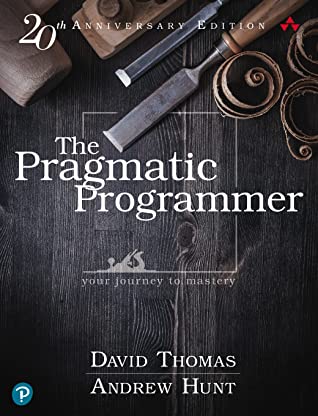Cross-posted from Goodreads
The Pragmatic Programmer is a structured collection of tips and practical advice for programmers looking to get better at their craft. In it, I found answers to many of my own doubts and dilemmas that I’ve experienced as a programmer for over a decade: questions of whether a particular approach or design is the right way, an overkill, or half-baked.
This one’s another seminal book on programming—like Clean Code—that I should’ve read years ago. Or maybe not: the first edition was written in 1999, where a lot of the technology and code samples discussed have become obsolete today. The second edition (2019) is a modern rewrite and what I picked up. While all code samples, as well as recommended languages, frameworks, libraries, and tools, have been revised the core concepts about being a ‘pragmatic’ programmer were true in 1999 and remain true 20 years later.
The gist of being a pragmatic programmer is that you deeply care about the quality of your software, write your code as a master craftsperson, and always keep your users at the forefront, but at the same time you also respect time commitments and know to stay away from the overengineering trap.
Although a lot of advice will feel ordinary to folks who’ve been programming for a few years, there are plenty of rock-solid gold nuggets of wisdom that will make reading the book worthwhile. Besides, the concepts that we know now and take for granted—like DRY and orthogonality—were literally born in this book (in 1999!).
